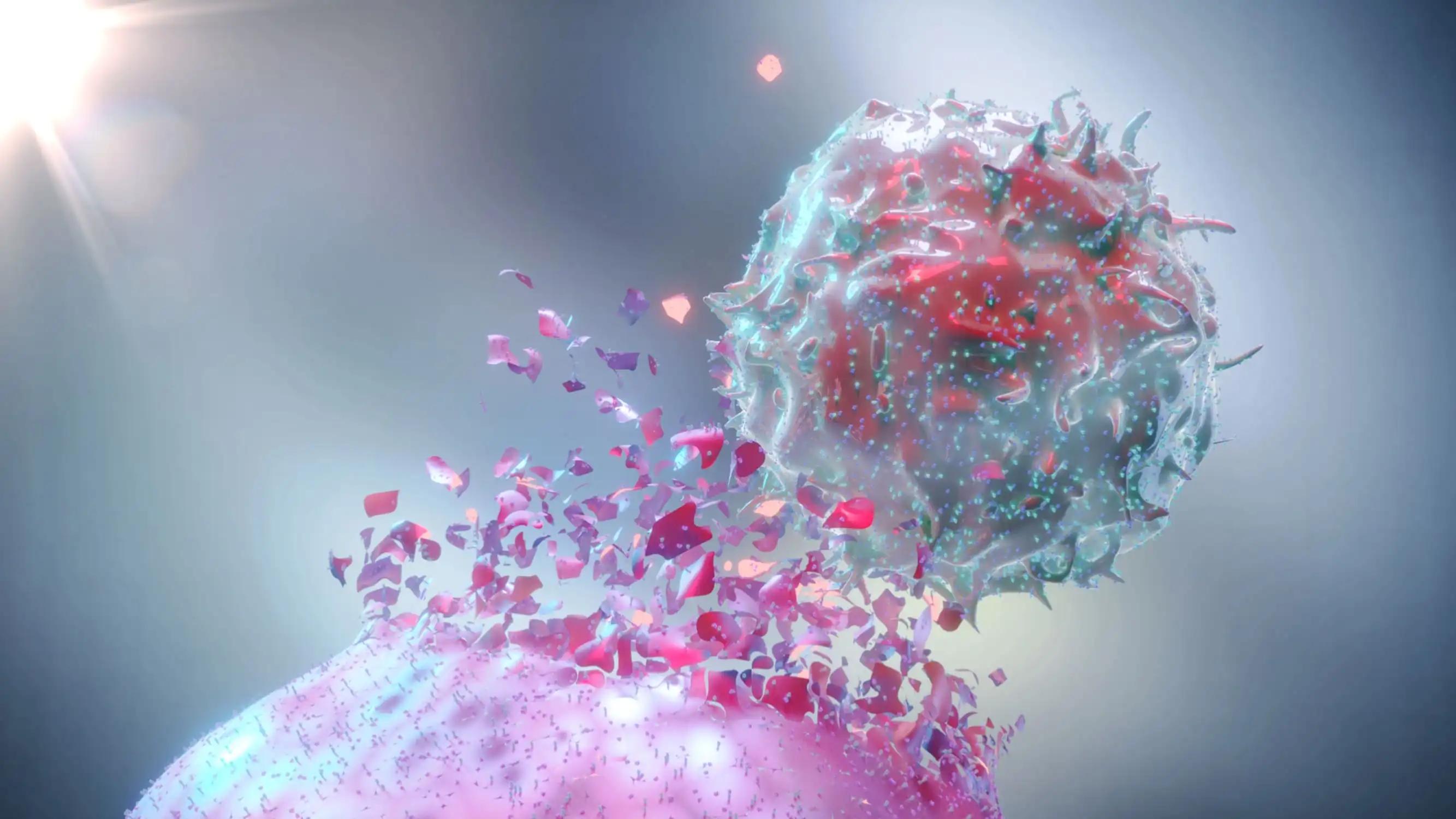KEY TAKEAWAYS
- The phase 1 study evaluated the safety and efficacy of BMS-986393 in RRMM pts.
- The trial’s primary endpoints were safety, MTD, and/or recommended phase 2 dose.
- The study showed that BMS-986393 was effective at all dosages, even in patients with prior BCMA therapy and those achieving MRD-negative CRs.
Targeted therapies using chimeric antigen receptor (CAR) T-cells that focus on B-cell maturation antigen (BCMA) have demonstrated considerable efficacy in refractory and relapsed multiple myeloma (RRMM). However, the issue of relapse remains a challenge. GPRC5D, an orphan receptor primarily expressed in multiple myeloma cells, emerges as a viable alternative therapeutic target.
Researchers presented preliminary findings on the safety and effectiveness of the dose-escalation phase (Part A) of the study CC-95266-MM-001 (NCT04674813). This Phase 1, first-in-human trial was an open-label, multicenter study examining BMS-986393 (CC-95266), a GPRC5D-specific autologous CAR T-cell therapy, in patients (pts) with RRMM.
Part A of the study encompassed pts who had undergone at least three previous lines of therapy. Previous treatments with BCMA-directed therapies and CAR T-cells were permitted. Following leukapheresis and lymphodepletion, they received a single infusion of BMS-986393. The main objectives included evaluating safety, establishing the maximum tolerated dose (MTD), and identifying the recommended dose for Phase 2.
As of September 7, 2022, 33 out of the 40 pts were administered BMS-986393, receiving doses of 25, 75, 150, 300, and 450 × 10⁶ CAR T cells. Among these, 48% had high-risk genetic factors, and 45% exhibited extramedullary plasmacytomas. More than half, 55%, had been previously treated with BCMA-targeted therapies, and of those, 13 had undergone BCMA-directed CAR T-cell treatment. Additionally, 24% of the participants were penta-refractory to multiple myeloma treatments.
In terms of treatment-related adverse events (TEAEs), 73% experienced severe (Grade 3/4) side effects. The most common of these were neutropenia (affecting 61%), anemia (21%), and thrombocytopenia (21%). Low-grade (G1) adverse events that were on-target but off-tumor included skin-related issues (30%), altered taste (dysgeusia) at 15%, nail changes (9%), and swallowing difficulties (dysphagia) at 3%.
Dose-limiting toxicities of prolonged, specifically long-lasting (up to 42 days) Grade 4 neutropenia and/or thrombocytopenia were observed in 2 participants. However, the MTD was not surpassed. Cytokine release syndrome (CRS) was experienced by 21 out of 33 participants, with 19 cases being low-grade (G1/2) and 2 cases at a more severe grade (G3). Neurotoxicity of the ICANS-type was seen in 2 participants but was of low severity and could be reversed with steroid treatment.
In terms of effectiveness, an overall response rate of 89% was recorded among those who were evaluable for efficacy. This includes 7 out of 9 participants who had previously been treated with BCMA-directed therapies, including CAR T cells. The median duration of follow-up for the treated participants stood at 3.1 months, ranging from as little as 0.1 to as much as 15.5 months. By the time of data cutoff, 15 of the 17 participants showing a response continued to do so.
All four participants with accessible data on minimal residual disease (MRD) and who achieved the best overall response of complete response (CR) tested negative for MRD (10-5 depth) at three months. Additionally, BMS-986393 led to a reduction in soluble BCMA levels at all tested dosages, and exposure to the drug demonstrated a dose-dependent effect.
Up to the point of data cutoff, escalating doses of BMS-986393, from 25–450 × 10⁶ CAR T cells, stayed within the MTD. CRS was predominantly low-grade (G1/2). ICANS-type neurotoxicity was rare, mild, and reversible. A smaller portion of pts experienced on-target off-tumor TEAEs, all of which were low-grade (G1). The therapy yielded durable responses and was effective across all administered doses, including instances of MRD-negative CRs.
The treatment was also effective for pts who had previously received BCMA-directed therapies. These initial findings endorsed the use of GPRC5D-targeted CAR T-cell therapy via BMS-986393 in treating RRMM, regardless of past BCMA-directed treatment. The study’s Part B, focused on dose expansion, is currently in progress. Future updates will be provided.
Clinical Trial: https://classic.clinicaltrials.gov/ct2/show/NCT04674813
Nadeem, O. P-037: BMS-986393 (CC-95266), a G protein-coupled receptor class C group 5 member D (GPRC5D)-targeted CAR T-cell therapy for relapsed/refractory multiple myeloma (RRMM): results from a phase 1 study.



